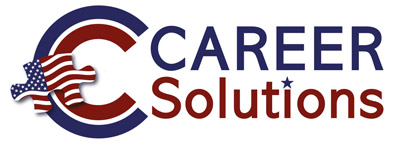The idea of doing research on targeted companies may not be at the top of your list of priorities. However, this is an important step for your job search success. Research can be done by targeting individual agencies and organizations as well as reviewing company websites.
Research questions to consider include:
- What is the agency’s mission?
- Would this agency or company be a good fit for YOU?
- What kind of work do they do?
- Does it line up with your values and goals?
- What is its history?
- Who are the hiring authorities?
- What is the organization’s financial outlook?
- Who could connect you to someone in the organization?
- What is the culture?
- Who are their customers?
- What do they value in employees?
- Has the organization been featured in recent media?
- What is the revenue or budget?
- Are they downsizing, reorganizing, or expanding?
To learn this information, you can research the organization on their website, LinkedIn, Facebook, Twitter, and other social media. Search for the company or agency name online to bring up recent media articles.
Research. Connect. And Network.
Once you’ve researched your target companies, you’re going to want to connect and network with employees who can link you directly or indirectly to the decision makers.
LinkedIn is where business professionals can often be found and it is a great resource for researching and connecting with people working in agencies, organizations, and companies. You can also use it to connect with employees and decision makers. You might consider the following:
- Ask what the individual likes about working in that agency and if he/she is aware of any upcoming job openings.
- Look for opportunities to have face-to-face interactions and build relationships with people who are in a position to hire you, or may be willing to introduce you to others who could hire you. Believe it or not, many opportunities actually come from your second and third-degree contacts. Many positions are never advertised because they are filled by people who have been recommended for the position by someone trusted by the hiring official.
- Use the LinkedIn Introduction feature to get introduced to decision makers.
- Find out what organizations they belong to and what causes they support.
- See if you can get involved in a common cause or organization, and then develop a network of contacts, based upon mutual interests.
- Attend local and community events with agency or organization involvement. Track your mileage and keep receipts to give to your tax preparer, as these expenses may be tax deductible. Please consult your accountant for additional information.
Follow Up Guidelines:
When you practice some basic guidelines, you may find that it becomes easier to follow up with contacts and leads. Keep the conversation friendly and offer them value first. Then, once you connect with people online, you could consider forwarding articles or posts that they might be interested in, based on your conversation. However, if you offer to send them information, be sure to send it promptly. Try to be a resource by providing something of value or interest to that person before asking for assistance.

Check your email often, and respond quickly and professionally.
Review new job postings and schedule interviews and informational meetings. Attend networking events and interact with people in casual conversations and be sure to nurture relationships with people you haven’t seen in a while. And don’t forget to keep track of these interactions!
MAGNETIC TIP: Take time to thank the people who are helping you with your job search.
Write and send “Thank You” notes to express your appreciation. Be kind and genuine! Thank your contacts for their time, as well as any information they provide. Finally, be grateful for their help in connecting you with contacts that can support your job search.
Be open to opportunities that come your way as a result of your new leads and connections, and consider the possibility that these opportunities could lead you to a job.
Join some groups!
Interact positively on LinkedIn, Facebook, Twitter, Threads, as well as other social media channels. In fact, join our free Boost Your Federal Resume group on Facebook.
Connect with people you know, such as former colleagues, and even with people you do not know. Join groups and engage in group discussions. Connect with members of your groups. Endorse your connections and give earned recommendations. Lastly, assess your social media presence and clean up anything controversial.

You can also write and publish posts about trends in your industry to get engagement from others. Doing this is a solid way to show your knowledge. You can also attend Tweet Chats and Facebook Lives that are relevant to your target industry. Finally, offer your expertise in a positive way, while being careful to avoid sounding like a know-it-all.
Please leave us a comment and tell us your biggest challenge with research and follow up tasks. We’d love to hear from you!
Like and follow us on social media:
- Mental Health and Career Success: Finding Clarity in Uncertain Times - October 10, 2025
- China-Linked Fake Job Scams Target U.S. Officials - September 17, 2025
- Why I Invest in LinkedIn Training: A Power Tool for Career Growth - August 10, 2025


